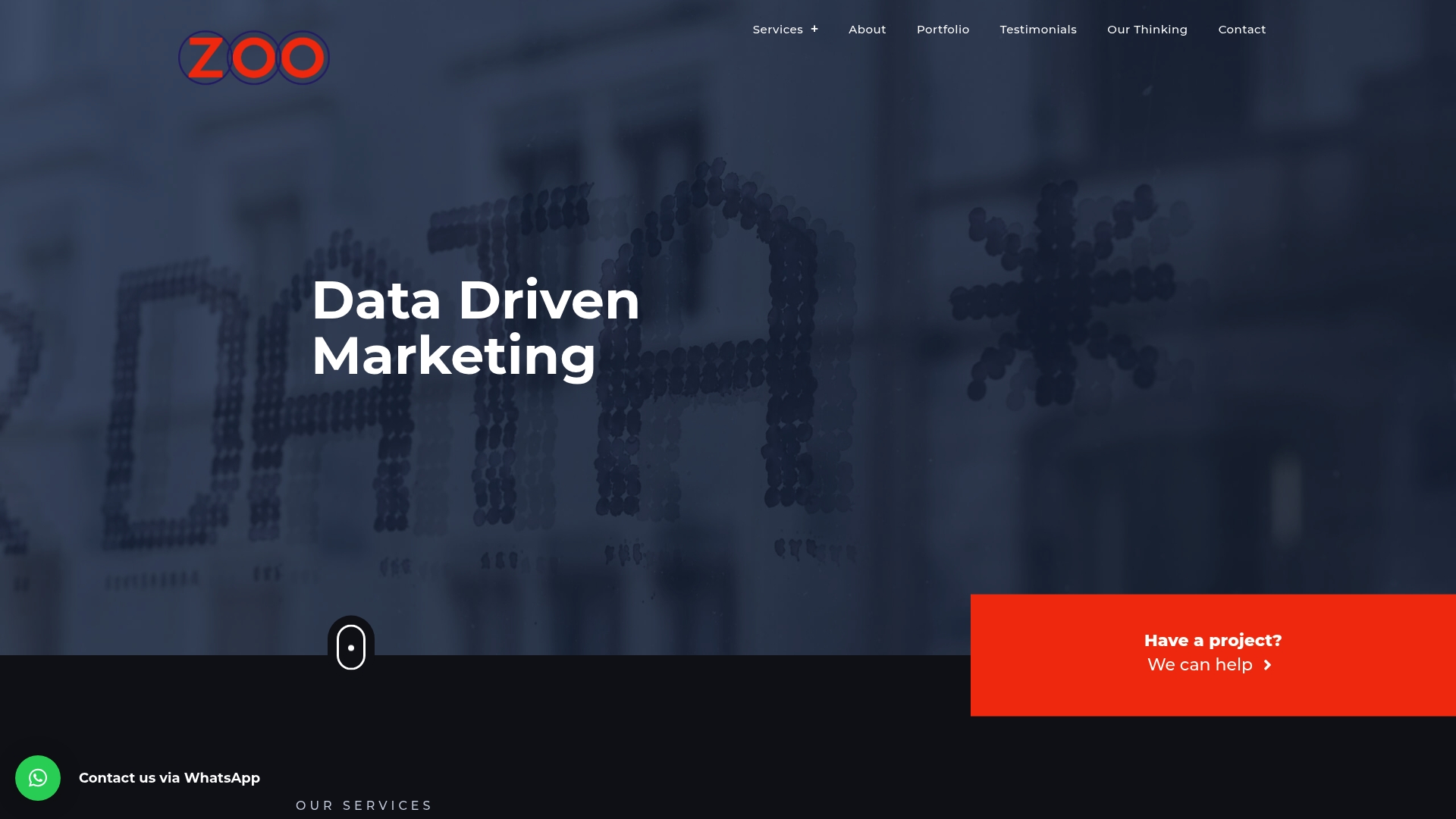Nearly 5 billion people now spend time online each day, making the digital world a central part of modern life. Reaching these audiences is not just an option for businesses, it is a growing necessity. Digital marketing today covers a huge variety of smart techniques and channels, helping brands build real connections with people wherever they scroll, watch, or search. Understanding how this all works helps businesses stay relevant and competitive in a fast-moving online market.
Table of Contents
- What Digital Marketing Means Today
- Core Digital Marketing Channels Defined
- How Digital Marketing Campaigns Function
- Legal Regulations And Data Compliance
- Common Digital Marketing Pitfalls To Avoid
Key Takeaways
| Key Point | Details |
|---|---|
| Digital Marketing Evolution | Digital marketing is essential for reaching modern audiences through various online platforms, as traditional advertising becomes less effective. |
| Core Channels Utilization | Businesses should leverage diverse digital channels like SEO, social media, and email marketing to maximize outreach and engagement. |
| Campaign Strategy | Successful digital marketing campaigns require precise audience targeting, strategic content creation, and ongoing performance analysis for optimization. |
| Regulatory Compliance Awareness | Companies must adhere to data privacy regulations such as GDPR to maintain trust and ensure ethical handling of user data. |
What Digital Marketing Means Today
Digital marketing represents a dynamic approach to connecting with potential customers through digital technologies and online platforms. According to research from Phoenix University, it plays a critical role in reaching modern audiences who consume entertainment and information through digital channels like smartphones, tablets, and streaming services.
At its core, digital marketing encompasses a wide range of strategic tactics designed to promote products and services using internet-based technologies. These strategies include social media marketing, display advertising, mobile ads, contextual marketing, and viral content creation. As traditional advertising methods become less effective, businesses are increasingly turning to digital channels to engage with consumers more directly and measurably.
The primary goal of digital marketing is to create meaningful connections with potential customers where they already spend significant time online. This means developing targeted campaigns across multiple digital platforms such as:
- Social media networks like Facebook and Twitter
- Search engine marketing
For small businesses looking to understand modern marketing, guide on digital marketing for beginners offers comprehensive insights into navigating this complex landscape. By leveraging digital technologies strategically, businesses can reach wider audiences, track engagement more precisely, and generate more effective marketing outcomes.
Core Digital Marketing Channels Defined
Digital marketing encompasses a diverse range of channels that help businesses connect with potential customers in strategic and targeted ways. According to research from academic sources, ten primary digital marketing channels exist that small businesses can leverage to expand their online presence and reach targeted audiences.
These channels can be categorized using the PESO Model, which classifies digital media into four distinct types.
 Paid Media includes social media advertising and sponsored content, while Earned Media represents third-party content published without direct payment. Shared Media involves content distributed across social platforms, and Owned Media comprises company-controlled digital assets like websites and blogs.
Paid Media includes social media advertising and sponsored content, while Earned Media represents third-party content published without direct payment. Shared Media involves content distributed across social platforms, and Owned Media comprises company-controlled digital assets like websites and blogs.
Here’s a summary of the ten core digital marketing channels and their key purposes:
| Channel | Primary Purpose |
|---|---|
| Email Marketing | Direct communication with subscribers |
| Affiliate Marketing | Performance-based partnerships |
| SEO | Increase organic search visibility |
| SEM | Paid search advertising |
| Content Marketing | Create valuable, relevant content |
| Mobile Marketing | Target mobile device users |
| Social Media Marketing | Engage audiences on social platforms |
| Influencer Marketing | Collaborate with thought leaders |
| Video Marketing | Deliver engaging visual content |
| AI Marketing | Personalised marketing using AI |
The ten core digital marketing channels include:
- Email Marketing: Direct communication with subscribers
- Affiliate Marketing: Performance-based partnerships
- Search Engine Optimization (SEO): Improving organic search visibility
- Search Engine Marketing (SEM): Paid search advertising
- Content Marketing: Creating valuable, relevant content
- Mobile Marketing: Targeting users on smartphones and tablets
- Social Media Marketing: Engaging audiences on social platforms
- Influencer Marketing: Collaborating with industry thought leaders
- Video Marketing: Creating engaging visual content
- Artificial Intelligence Marketing: Leveraging AI for personalized experiences
For small businesses seeking to develop a comprehensive digital strategy, guide on building a marketing strategy can provide deeper insights into effectively combining these channels for maximum impact.
How Digital Marketing Campaigns Function
Digital marketing campaigns are sophisticated electronic strategies designed to connect businesses directly with potential customers through interactive technologies. According to research, these campaigns facilitate many-to-many communications by leveraging highly interconnected digital platforms to promote products and services in a timely, relevant, and cost-effective manner.
At the core of digital marketing campaign functionality is the ability to create personalized, targeted interactions across multiple digital channels. Unlike traditional marketing approaches, digital campaigns allow businesses to reach specific audience segments with precision. This means crafting messages that resonate with individual customer preferences, behaviors, and demographics through carefully selected digital touchpoints such as email, websites, online forums, and social media platforms.
The typical digital marketing campaign follows a strategic process:
- Audience Identification: Defining target customer segments
- Channel Selection: Choosing appropriate digital platforms
- Content Creation: Developing engaging, relevant messaging
- Campaign Deployment: Launching across selected channels
- Performance Tracking: Monitoring and analyzing campaign metrics
- Optimization: Adjusting strategies based on real-time data
Small businesses looking to dive deeper into online advertising strategies can find comprehensive guidance in our guide on starting online advertising. By understanding these intricate campaign mechanics, businesses can create more effective digital marketing approaches that connect meaningfully with their target audiences.
Legal Regulations And Data Compliance
Digital marketing operates within a complex legal landscape that requires businesses to navigate carefully structured data protection and privacy regulations. According to research, cloud marketing especially demands rigorous attention to data privacy and data protection standards, with regulations like the General Data Protection Regulation (GDPR) fundamentally transforming the regulatory environment for digital marketing.
Historically, digital marketing relied on self-regulatory frameworks such as the International Chamber of Commerce (ICC) Code, which established initial guidelines for marketing communications in interactive digital media. Today, businesses must comply with increasingly stringent legal requirements that protect consumer data and privacy across multiple jurisdictions.
Key legal considerations for digital marketing include:
- Data Collection Transparency: Clearly explaining what user data is collected
- Consent Mechanisms: Obtaining explicit user permission for data usage
- Data Storage Protocols: Securing and protecting collected information
- User Rights Management: Allowing users to access, modify, or delete their data
- Cross-Border Data Transfer Regulations: Understanding international data movement rules
- Marketing Communication Consent: Providing clear opt-in and opt-out options
Small businesses seeking comprehensive guidance on navigating these complex regulatory requirements can find valuable insights in our guide on understanding multichannel marketing benefits, which explores the legal implications of modern digital marketing strategies.
Common Digital Marketing Pitfalls To Avoid
Digital marketing has evolved dramatically since its inception in the 1970s, transforming from traditional marketing approaches to sophisticated electronic strategies. Despite its potential, many small businesses fall into common traps that can undermine their digital marketing effectiveness and waste valuable resources.
The most critical pitfalls stem from fundamental misunderstandings about digital marketing’s complexity and dynamic nature. Businesses often make strategic errors such as neglecting audience targeting, failing to track meaningful metrics, or using a one-size-fits-all approach across different digital platforms. These mistakes can significantly reduce campaign performance and return on investment.
Key digital marketing pitfalls to be aware of include:
- Inconsistent Branding: Sending mixed messages across different channels
- Ignoring Analytics: Failing to measure and interpret campaign performance
- Poor Audience Targeting: Broadcasting messages instead of personalizing content
- Neglecting Mobile Optimization: Not adapting content for mobile users
- Overcomplicated Messaging: Creating content that confuses rather than clarifies
- Sporadic Content Strategy: Posting inconsistently or without clear purpose
Small businesses looking to navigate these challenges can benefit from our guide on common marketing mistakes, which provides actionable insights into avoiding these fundamental digital marketing errors and developing more effective strategies.
Unlock Your Small Business Potential with Expert Digital Marketing Solutions
Struggling to make sense of the many digital marketing channels and campaigns outlined in the guide is common for small business owners today. You want to connect with your audience using targeted campaigns, ensure compliance with data laws, and avoid costly pitfalls all at once. This can feel overwhelming without specialised support to implement strategies like Google Ads, Meta Ads, or SEO effectively.

Take control now with Zoo Digital’s tailored services crafted specifically for small businesses. Whether you need help setting up precise tracking, launching paid media campaigns, or automating customer communication via WhatsApp bots Zoo Digital’s data-driven marketing expertise is designed to deliver measurable growth. Ready to move beyond confusion and see real results? Explore our Paid Media Archives – Zoo Digital to understand how effective paid advertising can be. Then visit Zoo Digital for a full suite of solutions to build your brand and boost your online presence. Start today and transform your digital marketing approach into a clear, confident, and compliant success story.
Frequently Asked Questions
What is digital marketing?
Digital marketing refers to the strategic use of digital technologies and online platforms to promote products and services, enabling businesses to connect with potential customers through channels like social media, search engines, and email.
What are the key digital marketing channels for small businesses?
The key digital marketing channels include email marketing, affiliate marketing, SEO, SEM, content marketing, mobile marketing, social media marketing, influencer marketing, video marketing, and AI marketing. These channels help businesses engage with their audiences effectively.
How do digital marketing campaigns work?
Digital marketing campaigns leverage interactive technologies to create personalized and targeted communications across multiple digital channels. They involve audience identification, channel selection, content creation, campaign deployment, performance tracking, and optimization.
What legal regulations should small businesses be aware of in digital marketing?
Small businesses must navigate data protection regulations like GDPR, ensure transparency in data collection, obtain consent for data usage, and manage user rights regarding their data to comply with legal requirements in digital marketing.
Recommended
- Digital Marketing for Beginners: 2025 Guide for Small Businesses – Zoo Digital
- How to Start Online Advertising: Guide for Small Businesses 2025 – Zoo Digital
- How to Build a Marketing Strategy for Small Businesses in 2025 – Zoo Digital
- Digital Marketing Terms Explained for Small Businesses 2025 – Zoo Digital
- What is Digital Marketing? Understanding Its Importance
- Understanding SEO Best Practices for Your Business – My Blog

